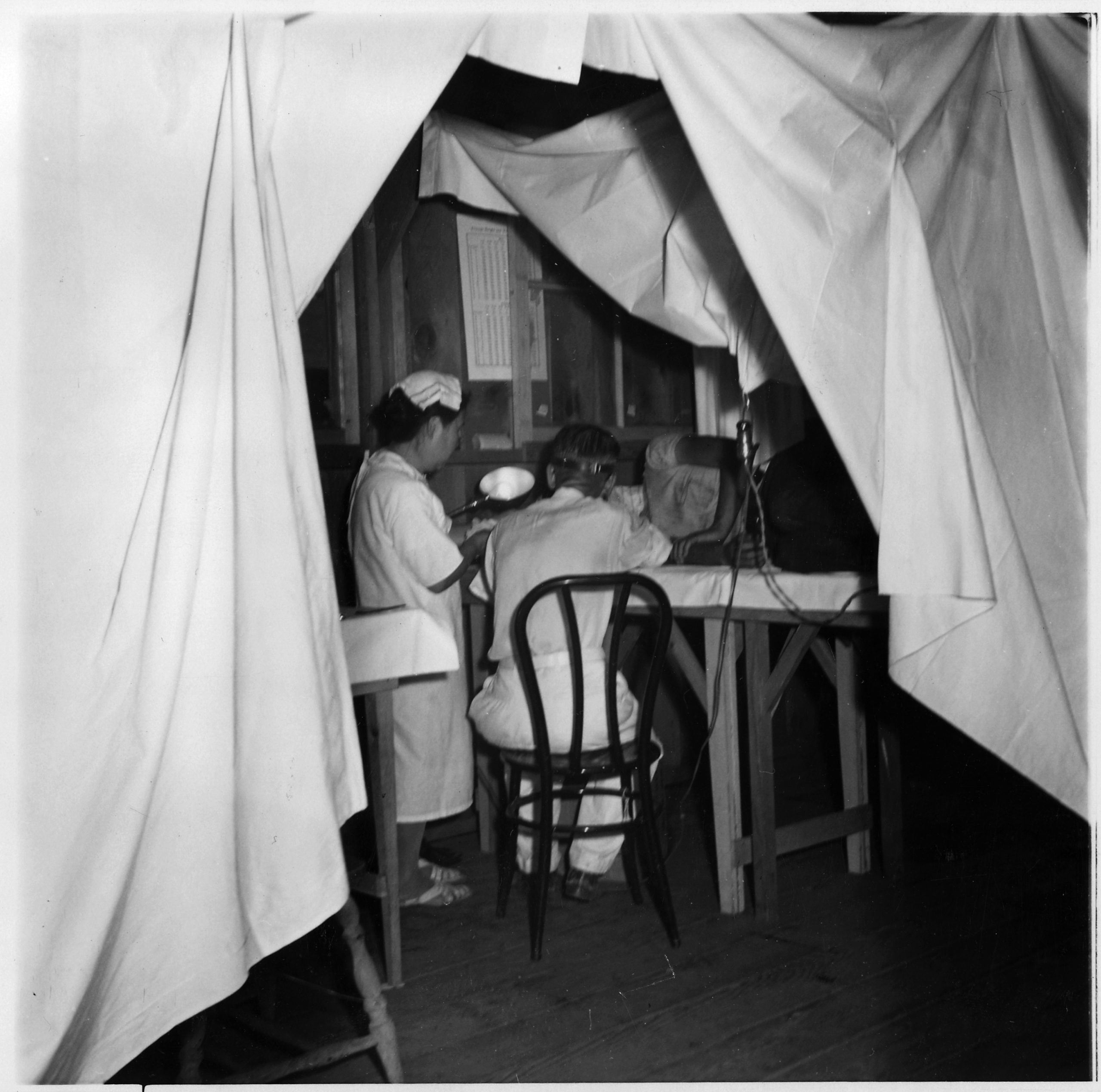 The burden of proof lies heavily on claimants to establish the elements of the claim they bring forward. Failing to do so can result in the dismissal of the charge. In the case of George Preston, a prisoner in a Louisiana jail, his complaint against Lieutenant Hicks and four state correctional officers for excessive use of force highlights the importance of meeting the requirements to substantiate a claim. Analyzing the alleged violation of Preston’s Eighth Amendment rights, the court carefully considered the evidence and ultimately decided to dismiss some claims while allowing others to proceed.
The burden of proof lies heavily on claimants to establish the elements of the claim they bring forward. Failing to do so can result in the dismissal of the charge. In the case of George Preston, a prisoner in a Louisiana jail, his complaint against Lieutenant Hicks and four state correctional officers for excessive use of force highlights the importance of meeting the requirements to substantiate a claim. Analyzing the alleged violation of Preston’s Eighth Amendment rights, the court carefully considered the evidence and ultimately decided to dismiss some claims while allowing others to proceed.
George Preston, a prisoner in a Louisiana jail, filed a complaint against Lieutenant Hicks and four state correctional officers for excessive use of force, violating his Eighth Amendment rights. The incident occurred when an officer opened an inmate’s cell. When the door opened, Preston rushed in and allegedly tried to hit the prisoner. The Sergeant on duty called for help from Lieutenant Bowie, Lieutenant Hicks, Sergeant Dauzat, and Sergeant Augustine. The officers then worked together to restrain Preston.
Preston claimed Lieutenant Hicks knocked him to the floor and elbowed him repeatedly in his face. While on the floor, Sergeant Augustine pinned his left arm behind him while Lieutenant Hicks pulled and twisted his right arm. Preston alleged Hick’s actions caused his shoulder to dislocate. Preston claimed he only entered the cell as a joke and that the officer retaliated excessively.
 Insurance Dispute Lawyer Blog
Insurance Dispute Lawyer Blog


 Timing. We all know it’s important, but how important is it in the legal field? Properly filing documents, adhering to deadlines, and raising legal issues within specific timeframes can significantly impact the outcome of a case. In the following case, the Fifth Circuit Court of Appeal looks to the issue of timeliness in the legal field and whether the cause of actions has matured enough to be “ripe” for judicial determination.
Timing. We all know it’s important, but how important is it in the legal field? Properly filing documents, adhering to deadlines, and raising legal issues within specific timeframes can significantly impact the outcome of a case. In the following case, the Fifth Circuit Court of Appeal looks to the issue of timeliness in the legal field and whether the cause of actions has matured enough to be “ripe” for judicial determination.  In the realm of insurance coverage disputes, a recent case has brought attention to the application of policy exclusions and their impact on the availability of coverage. Daphne Richardson Valteau took legal action after her father had been stabbed to death on premises owned by The Terraces Limited Partnership (“The Terraces”). The Terraces was managed by Latter & Blum Property Management, Inc. (“Latter & Blum”), while another company, Patriot Protection Agency, Inc. (“Patriot”), had been handling the security services for The Terraces.
In the realm of insurance coverage disputes, a recent case has brought attention to the application of policy exclusions and their impact on the availability of coverage. Daphne Richardson Valteau took legal action after her father had been stabbed to death on premises owned by The Terraces Limited Partnership (“The Terraces”). The Terraces was managed by Latter & Blum Property Management, Inc. (“Latter & Blum”), while another company, Patriot Protection Agency, Inc. (“Patriot”), had been handling the security services for The Terraces. When a prison official fails to provide necessary medical care to an inmate, legal action may be pursued against the individual. However, claiming deliberate indifference to an inmate’s serious medical needs requires meeting specific criteria. As exemplified by the case below, these factors are crucial in preventing individuals from bringing frivolous claims against government officials, ensuring that legitimate cases receive the attention they deserve.
When a prison official fails to provide necessary medical care to an inmate, legal action may be pursued against the individual. However, claiming deliberate indifference to an inmate’s serious medical needs requires meeting specific criteria. As exemplified by the case below, these factors are crucial in preventing individuals from bringing frivolous claims against government officials, ensuring that legitimate cases receive the attention they deserve. Navigating the intricacies of civil litigation requires strict adherence to procedural rules, as the failure to meet deadlines or follow the correct timeline can result in serious consequences for plaintiffs seeking justice. In the case of Michael Neal Rollins, an inmate who filed a lawsuit against the State of Louisiana, Louis Ackal, Sheriff of Iberia Parish, and the Corrections Corporation of America, the impact of missed deadlines and abandoned filings became evident. Rollins alleged physical abuse during his transportation back to the Iberia Parish Jail, but his case was ultimately dismissed due to abandonment. This instance highlights the critical importance of timely and diligent filings within the legal system, emphasizing the need for plaintiffs to navigate the complex procedural landscape to have their claims heard.
Navigating the intricacies of civil litigation requires strict adherence to procedural rules, as the failure to meet deadlines or follow the correct timeline can result in serious consequences for plaintiffs seeking justice. In the case of Michael Neal Rollins, an inmate who filed a lawsuit against the State of Louisiana, Louis Ackal, Sheriff of Iberia Parish, and the Corrections Corporation of America, the impact of missed deadlines and abandoned filings became evident. Rollins alleged physical abuse during his transportation back to the Iberia Parish Jail, but his case was ultimately dismissed due to abandonment. This instance highlights the critical importance of timely and diligent filings within the legal system, emphasizing the need for plaintiffs to navigate the complex procedural landscape to have their claims heard. Workplace accidents can strike unexpectedly, leaving individuals injured and grappling with the complex question of who bears responsibility. However, when such accidents involve heavy machinery and contractual relationships, determining fault can become even more challenging. In the case of Clark Nixon, a dump truck driver at Terrebonne Levee & Conservation District (TLCD), the lines blurred further when an incident unfolded on the job site. As Nixon seeks justice for his injuries, the lawsuit shines a light on the intricate interplay of liability, contractual obligations, and the need for skilled legal representation to recover medical costs and hold those at fault accountable.
Workplace accidents can strike unexpectedly, leaving individuals injured and grappling with the complex question of who bears responsibility. However, when such accidents involve heavy machinery and contractual relationships, determining fault can become even more challenging. In the case of Clark Nixon, a dump truck driver at Terrebonne Levee & Conservation District (TLCD), the lines blurred further when an incident unfolded on the job site. As Nixon seeks justice for his injuries, the lawsuit shines a light on the intricate interplay of liability, contractual obligations, and the need for skilled legal representation to recover medical costs and hold those at fault accountable. When a patient suffers from harm done to them by the negligence of a health care provider, he may be a victim of medical malpractice. A recent Louisiana Fifth Circuit Court of Appeals case explained why it is not always a case of medical malpractice when an avoidable medical death occurs.
When a patient suffers from harm done to them by the negligence of a health care provider, he may be a victim of medical malpractice. A recent Louisiana Fifth Circuit Court of Appeals case explained why it is not always a case of medical malpractice when an avoidable medical death occurs. When accidents involve children, gathering factual information regarding their physical health becomes even more crucial for building a solid case. This is particularly evident in a vehicle collision that took place in Lafayette, Louisiana. The case highlights the specific requirements for demonstrating injuries to children in an auto accident and what is and isn’t required to prove injuries to a child.
When accidents involve children, gathering factual information regarding their physical health becomes even more crucial for building a solid case. This is particularly evident in a vehicle collision that took place in Lafayette, Louisiana. The case highlights the specific requirements for demonstrating injuries to children in an auto accident and what is and isn’t required to prove injuries to a child. Being injured at work is never what you want to deal with. What’s worse is dealing with multiple independent medical examiners making opinions on your medical state. In the following case, the
Being injured at work is never what you want to deal with. What’s worse is dealing with multiple independent medical examiners making opinions on your medical state. In the following case, the  In contractual agreements, the validity of indemnity provisions can become a subject of contention between parties. But what happens when determining a contract’s maritime nature becomes pivotal in a case involving specialty services for drilling or production in navigable waters? As discussed below, this issue was scrutinized in a maritime appeal action filed with the
In contractual agreements, the validity of indemnity provisions can become a subject of contention between parties. But what happens when determining a contract’s maritime nature becomes pivotal in a case involving specialty services for drilling or production in navigable waters? As discussed below, this issue was scrutinized in a maritime appeal action filed with the